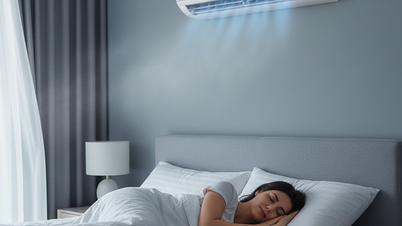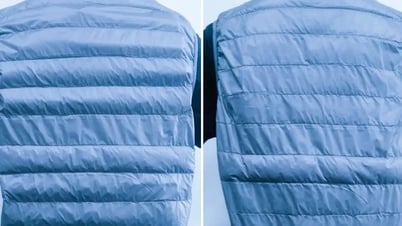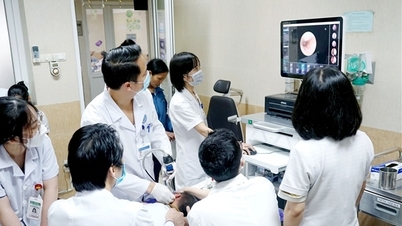Hyperhidrosis with abnormal odor causes confusion, loss of confidence, reduced quality of life and many other consequences.
The article was professionally consulted by Master, Doctor Ta Quoc Hung and Doctor Le Vi Anh, Department of Dermatology - Cosmetic Dermatology, University of Medicine and Pharmacy Hospital, Ho Chi Minh City.
Define
According to the Mayo Clinic Foundation (MCO) website, excessive sweating (excessive sweating, or hyperhidrosis) is sweating more than expected while the ambient temperature or physical activity level is normal, and the patient is not stressed.
Excessive sweating affects certain areas, such as the palms of the hands, soles of the feet, armpits, or face... Hyperhidrosis is associated with an unusual odor (body odor).
Who is at risk for hyperhidrosis?
- The disease occurs in all ages and genders.
- However, the disease is more common during puberty.
Reason
- Increased sweating is the body's self-cooling mechanism. The autonomic nervous system activates sweat glands when body temperature increases.
- Hyperhidrosis also occurs when stressed or anxious, especially in the palms. When suffering from the disease, the nerves responsible for controlling the sweat glands become overactive, leading to excessive sweating.
- Other causes may be genetic or diseases such as arthritis, nervous tension, spinal cord injury, blood disorders.
- Due to the use of certain medications, such as diabetes medications.
Symptom
- Typical symptoms are excessive sweating in the feet, hands and armpits or all three.
- Sometimes other parts of the body are also affected.
- Shirt, socks and shoes may be discolored.
Diagnose
- Diagnosis is based on medical history and physical examination.
- Blood tests may be done to rule out conditions that have symptoms similar to hyperthyroidism.
Treatment
Depending on the severity of the disease and the patient's needs, the doctor will give appropriate treatment such as:
- Use a topical antiperspirant.
- Botox injections.
- Use internal medicine, herbs, and nerve inhibitors to block the nerves that activate sweat glands.
- Antidepressants can also reduce sweating, which can help reduce anxiety.
- If the above measures are ineffective, the doctor will perform endoscopic surgery to burn the patient's sympathetic ganglion. However, this method leaves many side effects such as scarring, infection, permanent hyperhidrosis in other areas of the body, bleeding, nerve damage, so it should be considered.
Prevention
- Avoid deodorants and antiperspirants.
- Drink plenty of water, wear cotton clothes to absorb sweat.
- Change clothes and socks regularly, do not wear clothes made of nylon or synthetic fibers.
- Bathe every day.
- Manage stress, keep your mind relaxed, increase communication, and eliminate personal complexes.
- Limit spicy foods (onions, chili, garlic, alcohol...).
- Avoid foods high in oil and fat, foods high in caffeine.
- Maintaining a healthy diet rich in fiber and vitamins will help control sweating.
America and Italy
Source link


![[Photo] National Assembly Chairman Tran Thanh Man chairs the 8th Conference of full-time National Assembly deputies](https://vphoto.vietnam.vn/thumb/1200x675/vietnam/resource/IMAGE/2025/9/29/2c21459bc38d44ffaacd679ab9a0477c)
![[Photo] General Secretary To Lam chairs the meeting of the Central Steering Committee on preventing and combating corruption, waste and negativity](https://vphoto.vietnam.vn/thumb/1200x675/vietnam/resource/IMAGE/2025/9/29/fb2a8712315d4213a16322588c57b975)
![[Photo] General Secretary To Lam receives US Ambassador to Vietnam Marc Knapper](https://vphoto.vietnam.vn/thumb/1200x675/vietnam/resource/IMAGE/2025/9/29/c8fd0761aa184da7814aee57d87c49b3)
![[Photo] Many streets in Hanoi were flooded due to the effects of storm Bualoi](https://vphoto.vietnam.vn/thumb/1200x675/vietnam/resource/IMAGE/2025/9/29/18b658aa0fa2495c927ade4bbe0096df)

![[Photo] General Secretary To Lam attends the ceremony to celebrate the 80th anniversary of the post and telecommunications sector and the 66th anniversary of the science and technology sector.](https://vphoto.vietnam.vn/thumb/1200x675/vietnam/resource/IMAGE/2025/9/29/8e86b39b8fe44121a2b14a031f4cef46)































































































Comment (0)